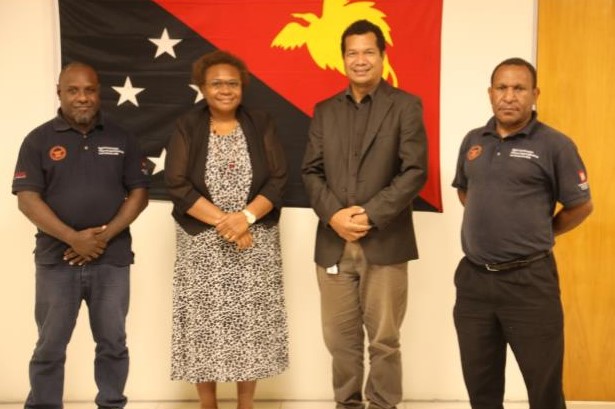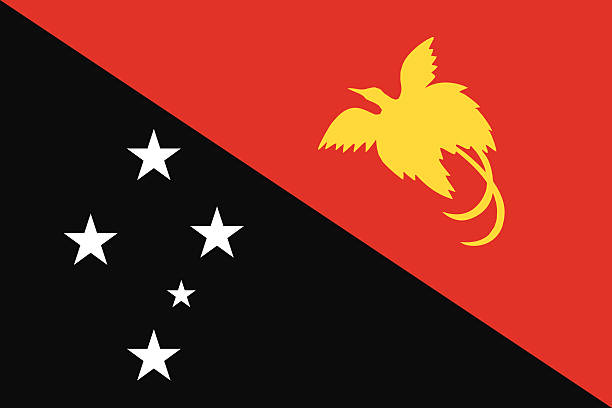Friday 02nd June 2023

The Papua New Guinea Department of Information and Communications Technology (DICT) has identified crucial government agency to participate in a groundbreaking pilot digitalization initiative, aligning with the government’s digital transformation policy and the Digital Government Act 2022.
Spearheading this effort, Secretary of DICT Steven Matainaho, initially engaged with Marleen Toliman Akop, the Head of the Office of Legislative Counsel (OLC) and First Legislative Counsel, in April 2022 to explore avenues for digitizing the manual legislative drafting process.
Legislative drafting is of utmost importance in Papua New Guinea’s parliamentary democracy, ensuring the enactment of clear, accountable, and adaptable laws.
However, the conventional manual drafting process presents a range of challenges that can be effectively addressed through digitalization.
The manual drafting process in Papua New Guinea is plagued by several issues. Primarily, it is time-consuming and resource-intensive, leading to delays in passing vital legislation.
Additionally, the complexity of legal language and technical terminology often results in laws that are difficult for citizens to comprehend and navigate.
Manual drafting limits stakeholder participation and transparency, impeding the democratic process.
Digitalization holds numerous advantages for legislative drafting in Papua New Guinea.
Firstly, it streamlines the process, reducing time and resource requirements. Collaborative digital platforms enable efficient communication and input from stakeholders across the country, ensuring broader representation.
By employing plain language and accessible formats, digitalization enhances citizen comprehension and engagement with the law.
Furthermore, online platforms facilitate real-time access to draft legislation, promoting transparency and encouraging public scrutiny.
The Office of Legislative Counsel (OLC) was established under the Legislative Drafting Services Act 1972 to translate government policies into legislation promptly and to draft laws in clear, simple English that can be understood even by laypersons.
During a meeting held today at the Department of Information and Communications Technology (DICT), Ms. Akop shared the OLC’s rich history and the challenges it faces, particularly regarding the manual legislative drafting process.
Present at the meeting were Joshua Pomaloh, DICT’s lead software developer; Stanley Sungi, business analyst and consultant; and Oala Moi, legal counsel. They attentively listened to the drafting challenges outlined and collectively devised an action plan.
First Legislative Counsel Marleen Toliman Akop expressed her appreciation for the assistance provided by DICT, acknowledging the Secretary for DICT’s commitment to extending support to the OLC.
She remarked, “I am very happy that we are receiving this assistance from DICT and thanks to the Secretary for DICT for extending this assistance to us. This is a first of its kind to digitize the process of drafting, moving away from manual processes, and I am looking forward to the outcome of this.”
Manager DevOps and lead software developer Mr Joshua Pomaloh from DICT affirmed their commitment to assist in digitizing the drafting process and tailoring industry-specific solutions. He stated, “The Department can come in to assist where we can in digitizing the process and provide industry-specific tweaks, along with the necessary templates.”
Mr Stanley Sungi, business analyst and consultant to DICT, assured the OLC that they would thoroughly analyze their existing business processes, identify challenges, and determine the most suitable solutions.
He added, “We will analyze your entire business processes and pick out the challenges involved and work out how we can come in and prescribe the solutions.”
Mr Oala Moi, DICT’s Principal Legal Counsel, provided an overview of the manual drafting process and the associated challenges.
He reiterated the importance of legislative drafting in Papua New Guinea’s parliamentary democracy and emphasized that these challenges could be effectively addressed through digitalization.
Mr. Moi expressed his eagerness to reconvene and collaborate on tailored solutions to overcome the OLC’s challenges, stating, “We will meet again to discuss how best we can provide tailored solutions to your challenges.”
Legislative drafting plays a critical role in shaping Papua New Guinea’s legal framework. However, the challenges associated with manual drafting can be successfully overcome through digitalization.
This meeting between the Department of Information and Communications Technology (DICT) and the Office of Legislative Counsel (OLC) marks an important milestone in OLC’s journey towards digitalization.
By embracing digital tools and platforms, Papua New Guinea can enhance efficiency, transparency, and citizen participation in the drafting process.
By combining legislative expertise with technology, the nation can ensure clear, accessible, and accountable laws that uphold democratic values and protect fundamental rights.
This is the shared vision of the Department of Information and Communications Technology (DICT) and the Office of Legislative Counsel (OLC), as they work towards translating government policies into legislation in a timely manner and writing laws clearly in simple and plain English for easy understanding by all.

